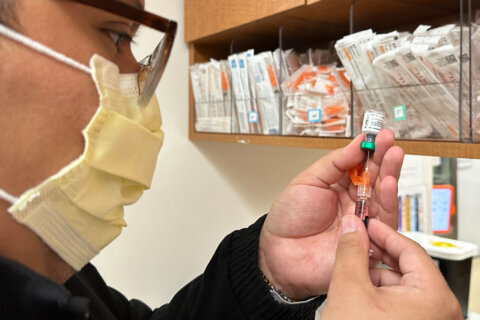WASHINGTON — Everyone loses sleep from time to time, but if it happens on a regular basis, and you feel the effects during the day, you’re suffering from insomnia.
No one knows exactly how many people are insomniacs.
“Insomnia is the most common sleep disorder that is out there,” says Dr. Neal Maru, a sleep specialist with Integrated Neurology Services in Northern Virginia.
He says insomniacs really feel their disrupted sleep during the daytime, and their symptoms can range from headaches to trouble concentrating to fatigue and memory problems.
And there is a bit of irony here: Studies of people with insomnia have shown they have a lot of brain activity when they try to sleep at night, but their brains are less active during waking hours.
Maru says the first step in treating insomnia is a focus on basic sleep hygiene — such as regular sleep hours, avoiding alcohol and caffeine right before bedtime, maintaining a comfortable sleep environment and turning off the electronics.
That helps a lot of people, but not all.
“For those folks who have tried doing all they can with sleep hygiene and are still struggling, then sometimes it requires medication to help them sleep,” says Maru.
It’s also a good idea to monitor moods, because stress, anxiety and depression can all have an impact on the amount and quality of sleep someone gets.
“I always ask folks about their level of stress or anxiety, or even if they are dealing with depression, because we know these things have a pretty high correlation with insomnia and other sleep disorders,” Maru says.







